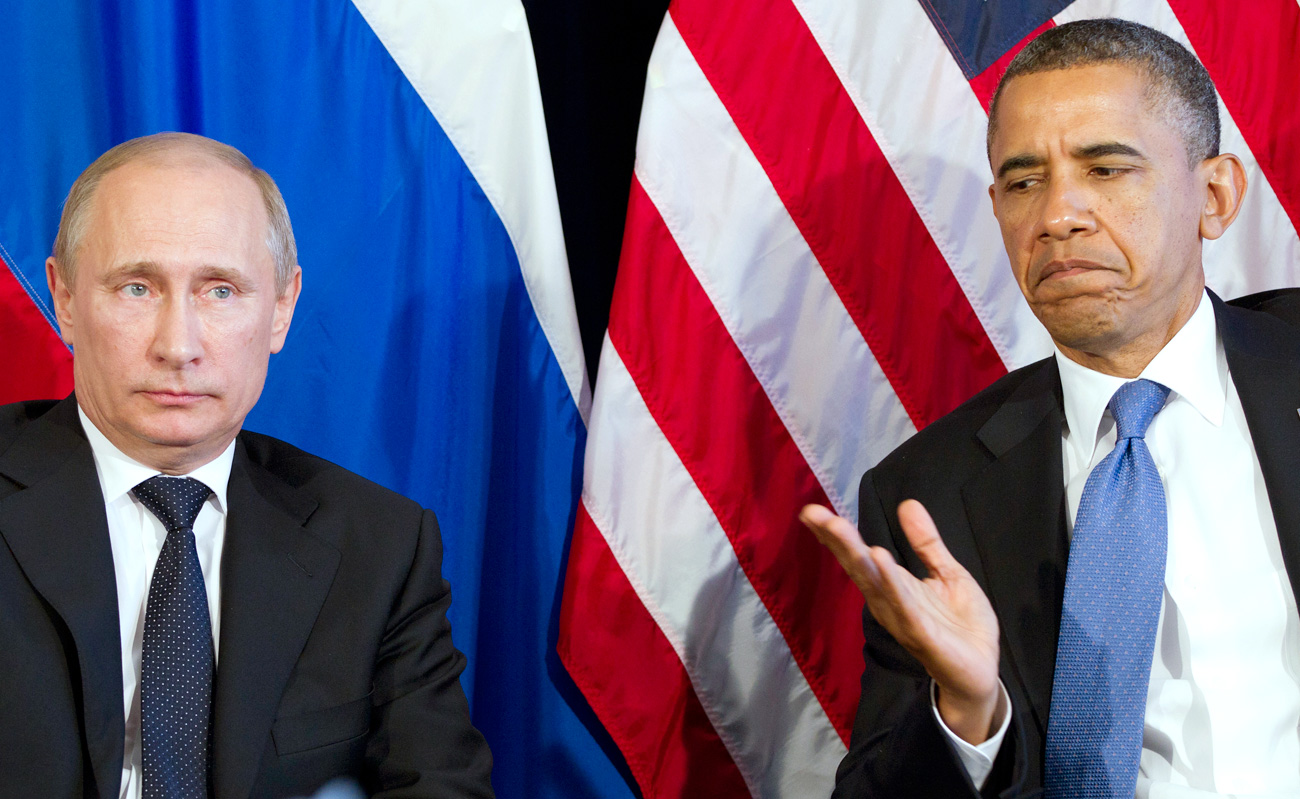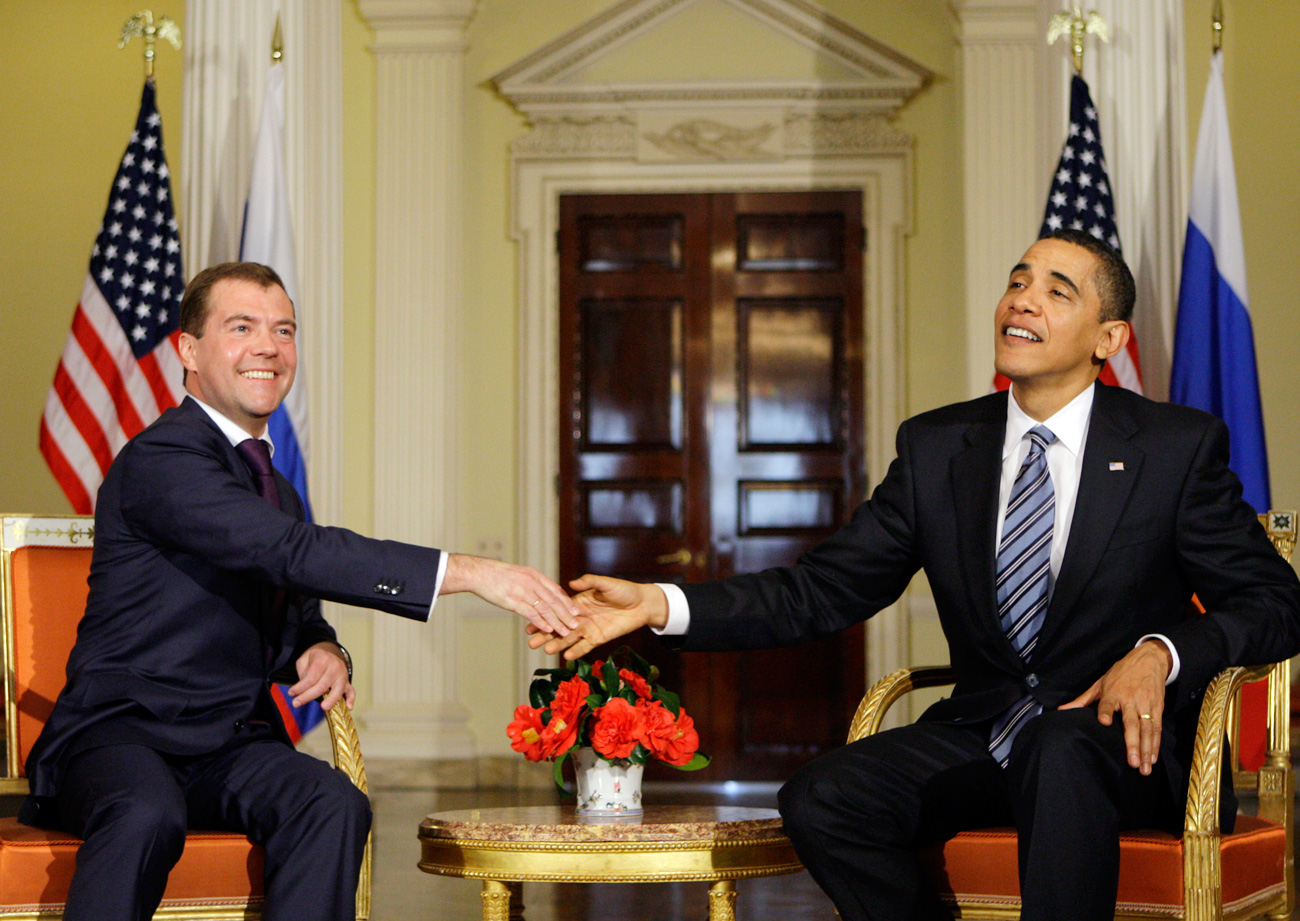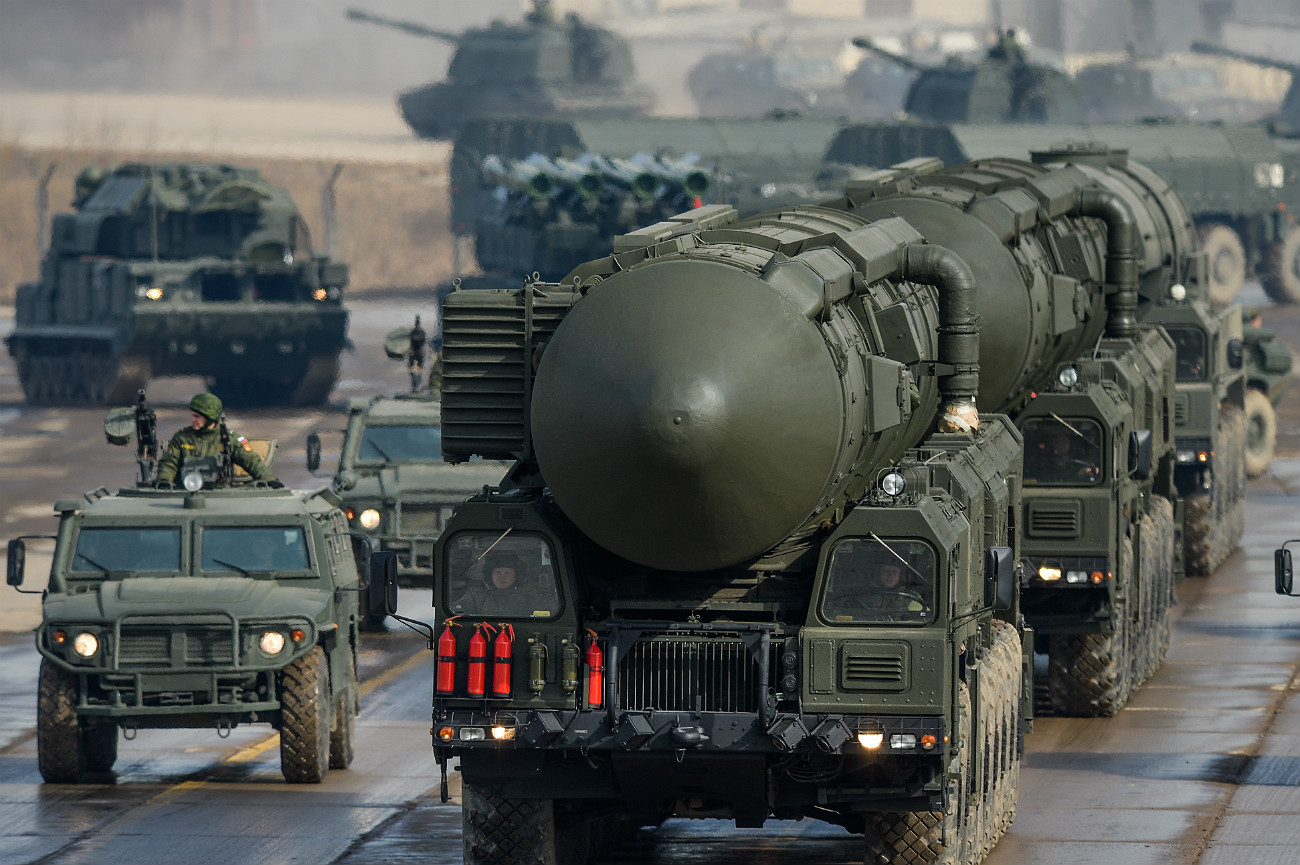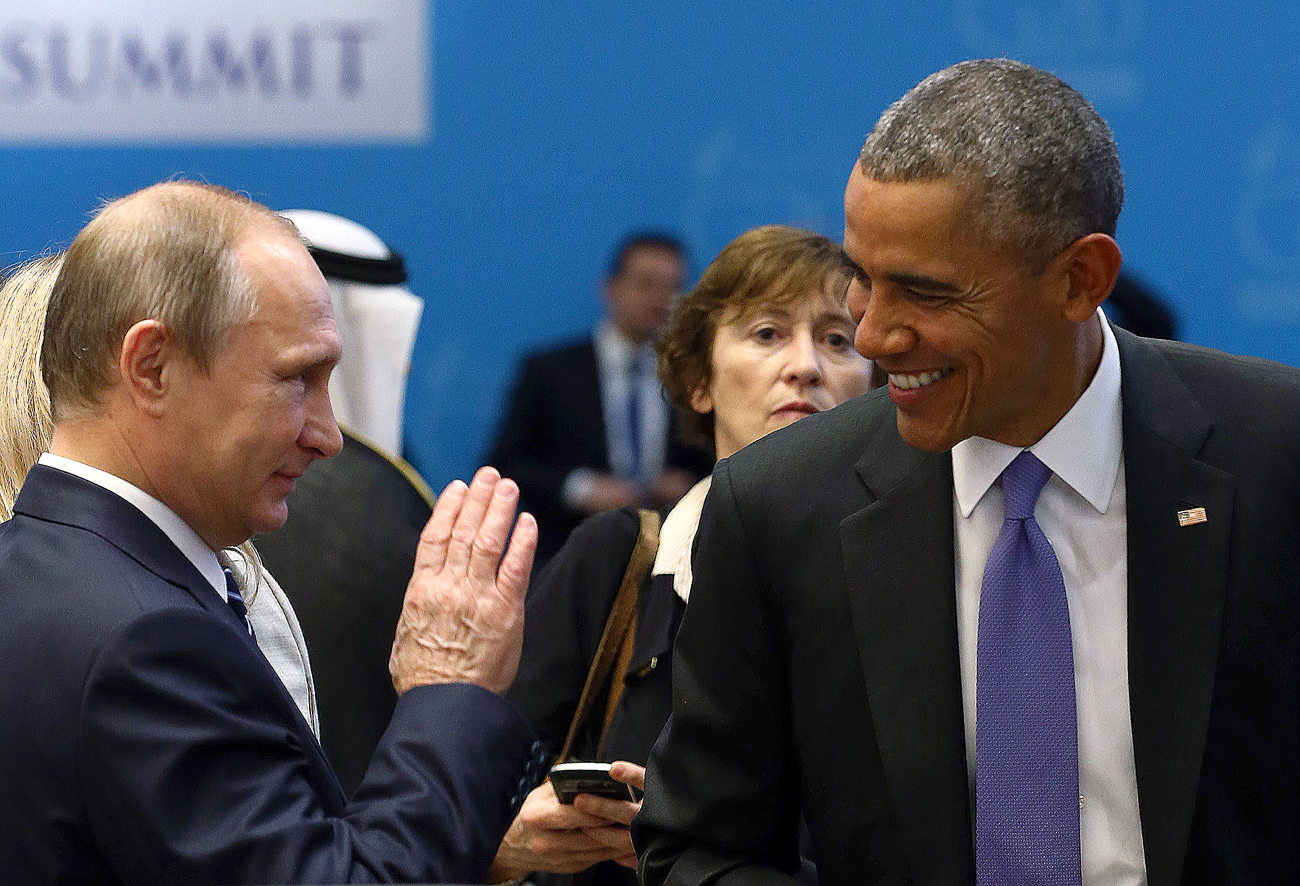Deconstructing Obama’s failure with Russia: What went wrong?

The Russian-U.S. relationship was not always strained under Obama. In 2008, Russia under President Dmitry Medvedev perceived the electoral victory of the 47-year-old senator from Illinois with cautious optimism.
APDuring Barack Obama’s final news conference on Jan. 19 he said that he had always advocated a constructive relationship with Russia.
“I think it's in America's interest and the world's interest that we have a constructive relationship with Russia. That's been my approach throughout my presidency,” he said.
However, by the end of Obama's presidency this relationship has left much to be desired, with Washington deporting Russian diplomats on accusations that Moscow is undermining the world order.
Obama himself has more than once spoken sternly about Russia, criticizing Moscow for its policy in Ukraine and for its “support of the murderous regime” in Syria. The Kremlin, in turn, accused the U.S. of anti-Russian sentiment and ambitions of global dominance.
Good intentions
The Russian-U.S. relationship was not always strained under Obama. In 2008, Russia under President Dmitry Medvedev perceived the electoral victory of the 47-year-old senator from Illinois with cautious optimism. Obama spoke about his plans to restore good relations with Moscow, which worsened with the August 2008 Russian-Georgian war over South Ossetia.
 The President of the United States, Barack Obama and Russian President Dmitry Medvedev shake hands during their meeting ahead of the G20 summit in London. April 1, 2009. Source: AP
The President of the United States, Barack Obama and Russian President Dmitry Medvedev shake hands during their meeting ahead of the G20 summit in London. April 1, 2009. Source: AP
Particular importance was attached to the possibility of the U.S. deploying components of its anti-ballistic missile (ABM) system in Poland and the Czech Republic, a very sensitive issue for Moscow, and also to signing the New START (Strategic Arms Reduction Treaty).
ABM as spoiler
The Russian reset process begun by Obama and Medvedev got off to a successful start. In April 2010, the two presidents signed New START, setting the nuclear rules through 2021. The countries agreed to reduce the number of nuclear warheads to 1,550, and the number of their strategic nuclear missile launchers to 700. According to Obama, the U.S. also assisted Russia in joining the WTO in 2012.
The European ABM issue dealt the first serious blow to the reset, said Evgeny Minchenko, president of Minchenko Consulting Communication Group.
“Despite the successful signing of New START, the Americans announced their plan to deploy the ABM system in Eastern Europe; this is when relations started to worsen,” said Minchenko, adding that Moscow was not convinced by Washington's assurances that the European ABM system was aimed against Iran rather than against Russia.
Alexey Arbatov, chairman of the Carnegie Moscow Center's Nonproliferation Program, concurs. “The U.S. believed that the ABM for Eastern Europe was a necessary precondition for continuing the dialogue with Russia,’’ said Arbatov. “Moscow, however, viewed this as an obstacle to dialogue.”
Arbatov added that Obama behaved pragmatically and in line with U.S. national interests, and that little depended on his personal traits.
Gaddafi, protests in Moscow
Then, a string of events took place whose cumulative effect worsened Russian-U.S. relations. The Arab Spring and NATO’s operation in Libya in 2011 were perhaps the most critical events.
“The killing of [Libyan leader Muammar] Gaddafi caused outrage in Russia,” Arbatov said, adding that Russian authorities viewed the civil war in Libya, and that country's disintegration, as a consequence of Washington's irresponsible and dangerous policy.
The next milestone in the deterioration of bilateral relations was the Russian parliamentary election in 2011, and the protests that followed.
“During the protests of 2011-12, the Russian authorities came to believe that the Americans were clearly meddling in Russia's internal affairs,” Minchenko said, adding that after Vladimir Putin returned to the presidency in 2012, relations with the U.S. soured even further.
Arbatov believes that following Putin's return to power Moscow abandoned the “European development path” for the first time since 1991, and Russia started to position itself as a Eurasian nation that didn’t care about what Washington and the West thought.
Isolated issues of cooperation
The final divorce came in 2014, with the annexation of Crimea and the civil war in Ukraine, Minchenko said. Washington supported Ukraine in its territorial dispute with Russia, and introduced economic sanctions against Moscow in order to counter “the Russian threat.” Putin countered by pointing out that the reset failed after Libya, i.e. long before Crimea.
 Expert: “During the protests of 2011-12, the Russian authorities came to believe that the Americans were clearly meddling in Russia's internal affairs.” Source: AP
Expert: “During the protests of 2011-12, the Russian authorities came to believe that the Americans were clearly meddling in Russia's internal affairs.” Source: AP
The current Syrian crisis, in which Russia supports President Bashar al-Assad and the U.S. backs armed rebels, has also had a significant negative effect on Russian-U.S. relations. The aggressive rhetoric peaked in autumn 2016, after another failed attempt to settle the Syrian conflict.
“The Russian-U.S. relationship came to be characterized by the spirit of the Cold War, with a possibility of it transforming into God knows what,” political analyst Fyodor Lukyanov wrote (in Russian) last October.
On the other hand, experts note that even at times of very bad relations Russia and the U.S. have shown an ability to cooperate on individual issues.
“Under Obama, after Putin returned to power, we were able to work together on the Iranian nuclear program and on destroying Syria's chemical weapons,” Arbatov said. “These examples of cooperation, however, were isolated and rather specific. Overall, the countries were already drifting apart.”
Read more: Russian Iskander ‘deliberately placed’ under passing U.S. satellite>>>
If using any of Russia Beyond's content, partly or in full, always provide an active hyperlink to the original material.
Subscribe
to our newsletter!
Get the week's best stories straight to your inbox

